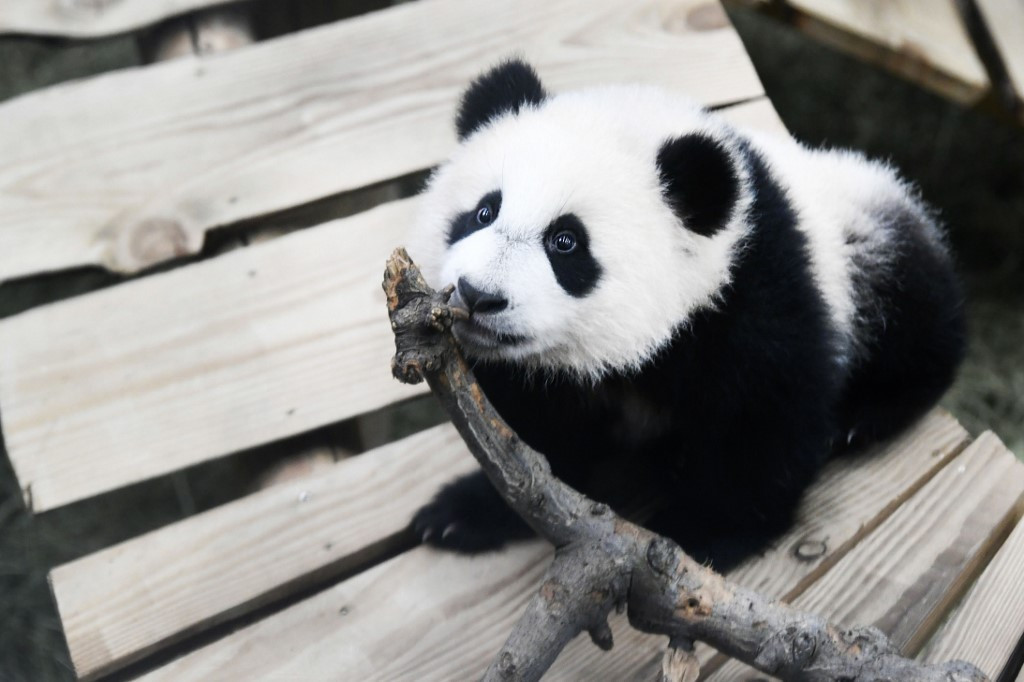Popular Reads
Top Results
Can't find what you're looking for?
View all search resultsPopular Reads
Top Results
Can't find what you're looking for?
View all search resultsBaby panda born in Netherlands makes public debut
Change text size
Gift Premium Articles
to Anyone
C
hewing on his paw and falling asleep on his face, the first giant panda born in the Netherlands made his debut in public on Friday at the age of almost seven months.
The young male, named Fan Xing, went on show at the Ouwehands zoo in the central town of Rhenen after it reopened following a coronavirus shutdown.
"I think he looks fine... Mum is around, he feels safe so that's nice," Jose Kok, the zoological manager at Ouwehands, told AFP.
"It's very special because it's the first cub born here in the Netherlands but I'm also very proud because it was a cub that was a result of a natural mating," said Kok.
"He started in the maternity den for some months and then gradually came out, started to walk and now he's there, climbing, falling."
Fan Xing was born on May 1 to two giant pandas -- female Wu Wen and male Xing Ya -- who were loaned to the Netherlands by China in 2017 for 15 years.
Read also: Lucky children greet Fu Bao, the first panda born in South Korea
His name, revealed in October, is a mixture of "Fan", a reference to Dutch painter Vincent van Gogh, and "Xing", which means star.
He can stay in the Netherlands for four years before he must return to China as part of an international breeding program.
"But we're also proud of that you know, because then he's going to be part of the international breeding program and he is the ambassador for giant pandas in China, in the wild, that needs protection," said Kok.
Famed for its "panda diplomacy", China has dispatched its national treasure to only about a dozen countries as a symbol of close relations.
Pandas are notoriously bad at reproducing, especially in captivity. According to the World Wildlife Fund, just over 1,800 were found remaining in the wild in the last census in 2014.











